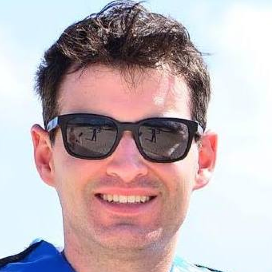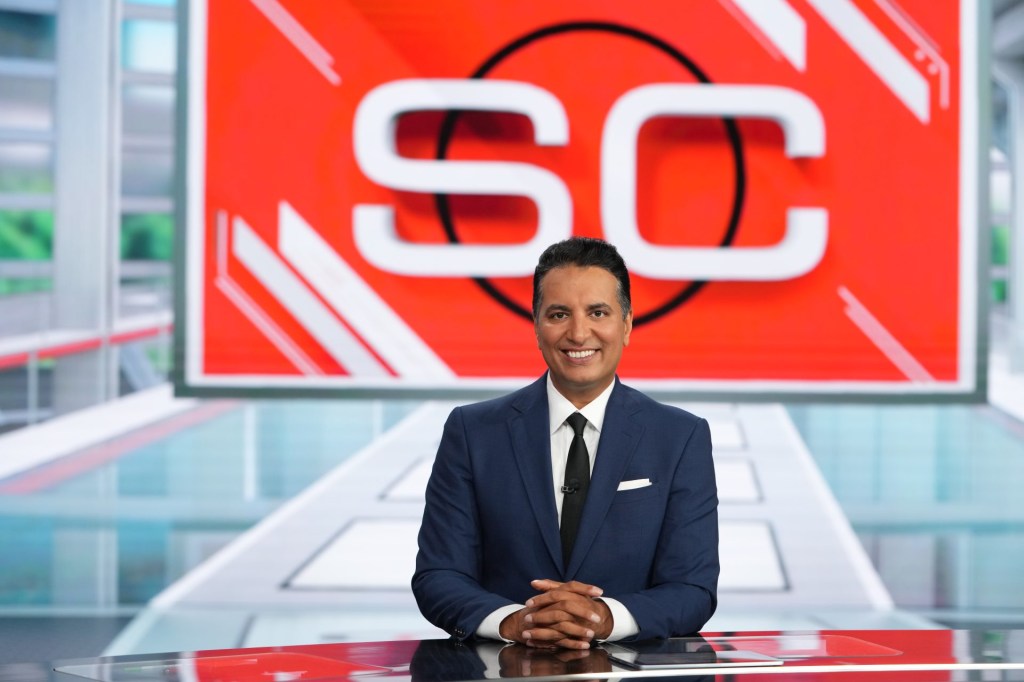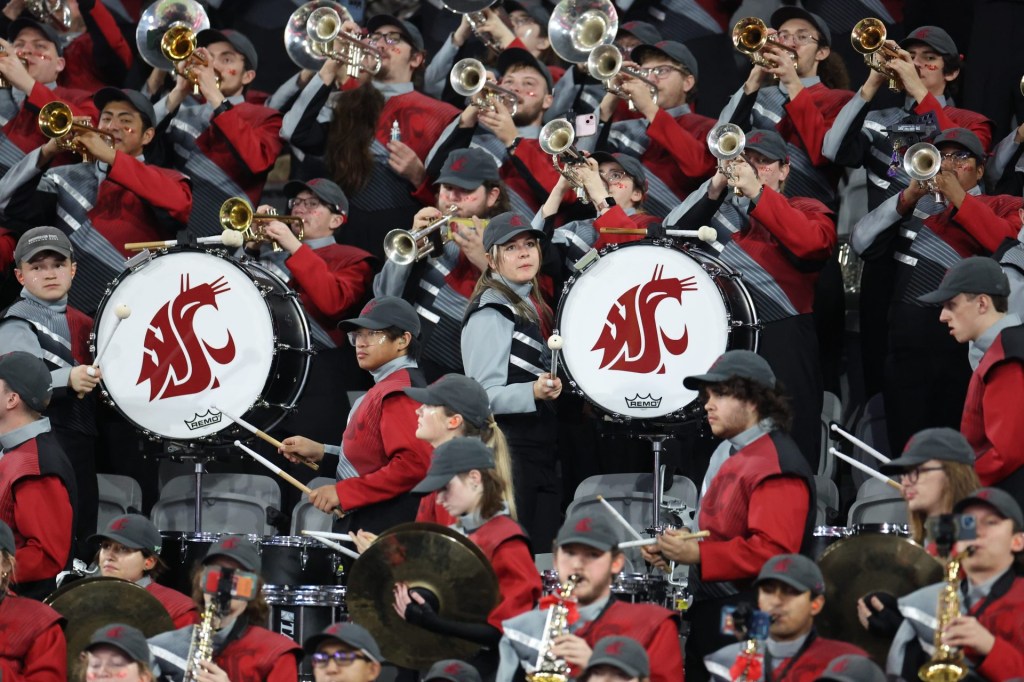By: Adam White, @FOSAdam

Have you ever thought that you could go out on your own and create the next Facebook or Twitter? As dreamers and doers of the 21st century, many of us share the hunger and drive for success that Jim Weber used to propel him to where he is today. What started out as a passion in college, has become a lifelong career, but not without the many twists and turns life would throw at him over the course of the immediate years after his graduation. This is his journey. This is his story.
Jim Weber was not unlike you or I as a college student. He went to a great school, was active in clubs and organizations that would propel him to landing his first full time gig right out of college and was armed with the gumption and passion of someone who wanted to take the media world by storm upon graduation, but little did he know the next 12 years would be anything but easy.
When looking back on his career to this point, Jim would describe his journey as a, “Roller coaster…It has been a winding road to say the least. When I graduated from the University of Michigan, I packed my bags and moved to New York City with a plan to break into media but without a job waiting for me.”
A leap and a bound later Jim found himself settled into his first job out of college as a trivia question writer for RewardTV. “My job entailed watching TV shows and coming up with trivia questions based on the episode and what went on in it. The main purpose behind it was to see if people noticed product placement on the show.” As you can imagine, this position wasn’t ideal for someone who, just less than six months ago, was a sports editor for the University of Michigan school paper. “It was one of the toughest summers I had had and it was probably one of the most difficult times of my life as I was working odd hours and doing something that I didn’t just go to college for four years to do.”
Like many other students, Jim faced the first summer out of college with uncertainty and came to find out quickly that it was a huge adjustment. “That first summer is such a difference from your senior year of college. The whole year is really a victory lap as you try to enjoy every last second of your time with your friends. Second semester it gets even worse because you aren’t worried about grades and going from a victory lap with limited responsibilities to the workforce is a huge shift.”
Once he was able to make the adjustment, he landed his first “real” job and the “first job I put on my resume” as an NBC Page. “As an NBC Page, you are in an environment where everyone is a huge go getter and super earnest as they try to win approval and move up the ladder. It was exciting at first because you are working in Rockefeller Center and because there are so many people who, at one point, were a page who go on to huge positions in the TV world.” A writer at heart, the job for him began to feel monotonous and as he reflected on it, he would go on to say, “After two months, I felt like I had become a robot.”
As an NBC Page, giving tours and answering phones wasn’t his only role (or so he thought) when he was able to take an assignment as the page for NBC Sports.
“Luckily I got to work for NBC Sports, but on my first day I continued to just answer phone calls and it felt like it was what I had been doing for the past few months all over again. At the end of the day, the woman who I was reporting to called me in and told me that they had to let me go because I didn’t have good body language. My assignment had just lasted all of one day before I was sent back to ticketing and touring.”
Not only had he just lost his assignment, but his pride as well. “That was a pride swallowing moment for me,” he would go on to say as he detailed his frustration.
In sports media, there is a traditional way to work your way up and there is a non-traditional way to work your way up and Jim knew that he had chose the latter of the two. As he would go on to detail, this choice didn’t come without its fair share of challenges saying, “Again it was another frustrating moment for me because, in sports media, you can go the traditional route of going to someplace in the middle of nowhere to cover high school sports in order to work your way up the beat. Although it may have been shortsighted at first, doing that didn’t interest me as I wanted to work in a magazine or a publication.”
Luckily, he was able to use the power of networking to find his next gig as a researcher for College Sports TV, which would later become the CBS Sports Network.
“While I was at NBC I made a connection through the page alumni network with someone who worked at College Sports TV and I was able to land a job in the research department fact checking scripts for on-air personalities as well as creating stat packages for the broadcasters.”
From there, he would go on to bounce around from research position to research position ultimately landing at ESPN the Magazine in a role that he would describe as, “A professional Googler.” While continuing to attempt to ignite his writing career, he found himself stuck at ESPN where, “With so many staff writers and only so much space, they didn’t want to take any writing pitches from me so again I found myself fighting against a glass ceiling.”
The year was 2009, and the blogosphere was the Wild West being led by outlets such as Deadspin, but like any go-getter, Jim jumped right in and Lost Lettermen was born.
“There were already a few big names out there so I decided to focus my coverage just on college sports. My original thought was to create a database of former college players and create an IMDB-like site but for former college football and basketball players.”
While admitting that this idea could have been a successful one, he knew to succeed in the world of blogging they had to create original content, “Early on so much of the success of blogs was based off of Google referral traffic and without the SEO powers for some of these other blogs I struggled to get noticed. At that point, I decided that we should create original content and we began to start posting articles, top 10 lists and interviews with former players and we saw our following grow.”
For Jim, like the rest of his career, getting Lost Lettermen off the ground wasn’t something that happened overnight. “I would say one of the most frustrating parts is that in early days of putting the site together, you would spend so much time on a story and you would do such a good job hoping that story would go viral and put the site on the map and then once you realized that you only had 50 readers you would begin to question your abilities and why you spent such a long time doing this piece. Building the site from the ground up was the toughest.”
Finding their niche took time, but he knew that to be different and get noticed they had to take a different approach to the coverage of the games and what they did at the time was pioneering.
“To take us to the next level I decided that we needed to cover the aspects of the game that ESPN wouldn’t cover such as the funny stuff and the stuff on Twitter. Although ESPN is now getting into the viral content coverage, at that time, and still today, it is an aspect many traditional publishers do not cover.”
Not only was Lost Lettermen unique on the web, their social presence led itself to building and strengthening their brand. “For us, we didn’t do anything too radical to set us apart. For the most part, we stayed with a tone of humor, as we wanted to make sure we didn’t become this scolding hot take feed. We truly wanted to be able to create a feed that any fan could enjoy not just the fan of a single team,” Weber said.
Ten years removed from working as a trivia question writer, Jim Weber had seen Lost Lettermen garner national attention leading to over 25 million page views per month.
Like any shrewd businessman, he knew it was time to take the next step and sold the website to a major media company and is now on to a new adventure.
For Jim, his career has come full circle. From his time at the University of Michigan, to his experiences as a trivia question writer and an NBC Page he learned that the path to success in this industry isn’t easy, but, like he put it, “If you remember to work your ass off, network like crazy and don’t chase just one story,” you might be sitting on the next big thing.
You can follow Jim on Twitter here and connect with him on LinkedIn here!
















